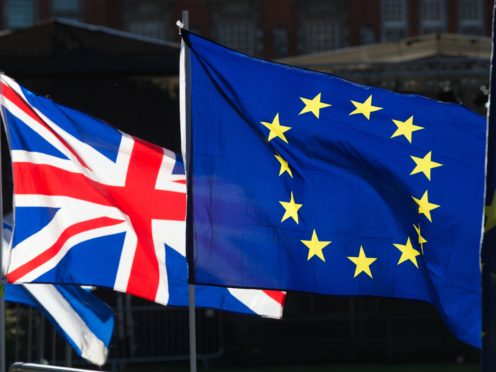Musicians have called for the Government to preserve their freedom of movement in a post-Brexit Europe.
Around half of performers in the UK’s multibillion-pound music industry have been negatively impacted by Brexit, according to a new report.
A professional body representing the nation’s musicians has called for the Government to specifically preserve their freedom of movement, or create a special visa for roving talents.
It has been claimed that UK bands, singers and orchestras depend for their livelihoods on European travel for gigs and festivals.
Even the ivory in pianos could face restrictions after Brexit, it has been claimed.
The Incorporated Society of Musicians (ISM) said: “The Government must ensure that free movement rights are maintained for musicians.”
A report by the ISM shows around 50% of surveyed musicians have suffered negative effects from Brexit, with 65% saying difficulty travelling to EU countries was the biggest concern.
The difficulties with securing visas for European touring could hit the wallets of UK performers, and have a knock-on effect on the economy overall, it has been claimed.

Around 60% of respondents in the report feared that transportation of instruments and equipment in the European Union would be restricted, slowing down tours and affecting bookings.
Even transporting piano ivory or the rosewood used in certain instruments – materials protected under International Trade in Endangered Species of Wild Fauna and Flora rules – could be hampered, the report claims.
Deborah Annetts, chief executive of the ISM, said: “Musicians’ livelihoods depend on the ability to travel easily and cheaply around multiple countries for work in a short period of time.
“If freedom of movement is to end, the Government must ensure that free movement rights are maintained for musicians, or introduce a two-year multi-entry visa for British musicians.
“At a time of great uncertainty, musicians need to know their jobs in EU 27 and EEA will be secure once the UK leaves the EU. Therefore we call for the Government to take action.”
The majority of musicians surveyed said they could not afford health insurance without the European Health Insurance Card, and also rely on current exemptions from paying social security contributions abroad.
The economic impact of restrictions on musicians, and the wider economy, has been highlighted by Conservative peer Lord Black of Brentwood.
He said: “If and when the UK leaves the EU, it is our prosperous music industry – now valued at £4.5 billion a year to the economy – our musical heritage, and our worldwide reputation for musical excellence which must inevitably be one of the most secure engines for prosperity in post-Brexit Britain.
Music is everywhere.
But it is at risk.
We are calling for freedom of movement to be maintained for musicians after Brexit, or the introduction of a two-year working visa.
Because we cannot live in silence.#SaveMusichttps://t.co/xyJywgxf43 pic.twitter.com/1ZwgJFJA2s
— ISM (@ISM_music) October 31, 2018
“If musicians cannot travel easily to the EU 27, this will all be put at risk.”
The ISM report recommends new, cheap two-year visas and a departmental advice hotline for travelling musicians, as well as clearer regulations and a new health insurance scheme.
British singer Hannah V said of the post-Brexit landscape: “Ultimately, the best music comes from collaboration and borders should not hinder that process.”
Commenting on the report the Home Office said: “The cultural and creative industries are one of the UK’s greatest success stories, producing world-class talent, products and services.
“The UK’s withdrawal from the European Union will not change that.
“Our future skills-based immigration system will support these vital industries, while also enabling us to control immigration in the national interest.
“We are engaging extensively with the sector during 2019 ahead of taking final decisions on the future system.”
